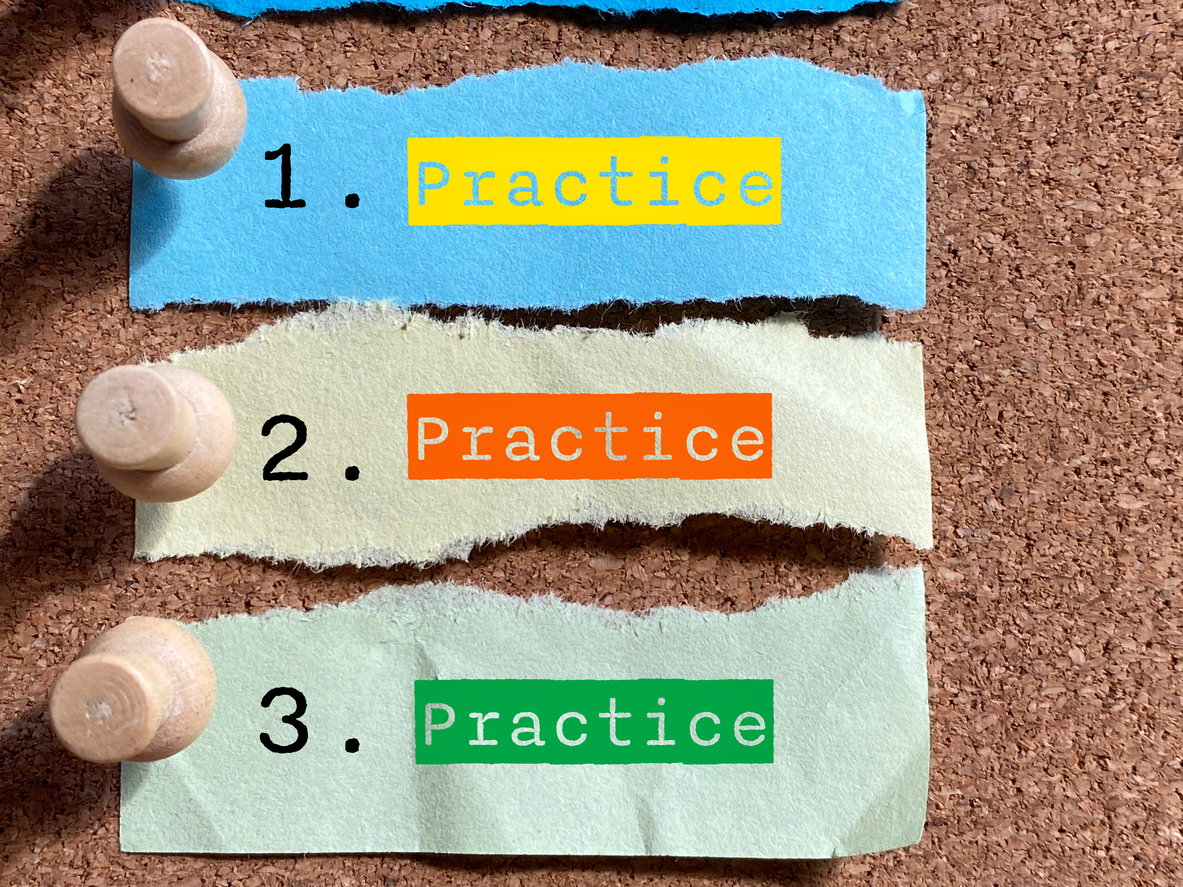
In our “train the trainer” events participants are asked to practice a number of non-physical and physical activities and skills to increase their proficiency. We sometimes get pushback from participants about there being “too much repetition.” We also discuss how important it is to have their students practice skills – even outside of the classroom setting. So, why is practice so important and why does The Mandt System advocate for it as much as we do?
Practicing new skills is important because repetition facilitates the development of neurological pathways within the brain. If you think about something that you do on a very regular basis (i.e. brushing your teeth, or your drive to work each day) those are skills that you don’t even need to think about to be able to perform successfully. This is also sometimes referred to as being unconsciously competent in that skill. You don’t have to give it any thought to be able to perform the skill. It takes many, many repetitions and significant time investment to get to this level of proficiency and mastery of a skill.
As you practice a new skill the repetition also allows you to perform the skill in a more fluid, smooth, and uninterrupted manner. A skill that you have mastered does not require you to pause, even for a moment, to think about what the next step would be. However, if you practice to a point where you’re pretty good at the skill, in a real life and stressful situation you may need to think about what the next step would be. It doesn’t just come automatically to you. This is sometimes referred to as being consciously competent in that skill. You know how to perform the skill and you may be able to do it well, but it definitely takes some conscious effort and focus to be able to complete it at a high level of proficiency. In a crisis situation, this could mean the difference between being able to keep a situation safe, or not being able to do so.
Practicing new skills, especially early on in the learning process, allows us to solidify our knowledge and expertise which means we will also be able to retain knowledge of the skill longer and more effectively. Essentially, this higher level of mastery of a skill also reduces the amount of brain power we require to perform the skill. For a new learner, however, the repetition may start to feel static or boring. It’s important to help the folks you are training understand why the repetition of practice is actually such a vital component.
A side note and perhaps unexpected benefit of practicing skills is that as folks become more and more proficient it will actually boost their confidence and may cause people to feel more empowered to choose the best type of intervention in a variety of situations they face. The more successes a person experiences, the more that confidence will develop. That development of confidence will begin with practice in a safe environment (your training environment) with effective coaching (from you).
So, even if you get pushback about practicing, please understand how incredibly important repetition is and try to develop strategies for folks to continue practicing even beyond your classroom setting.
If you’d like ideas about how to facilitate practice, please feel free to reach out to us at The Mandt System. We are always here to help in whatever way we can!
Nikki Wince – Director of Faculty Development



